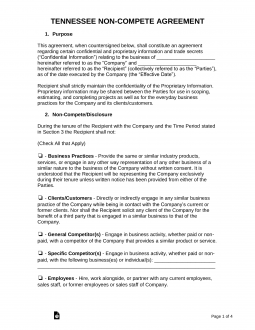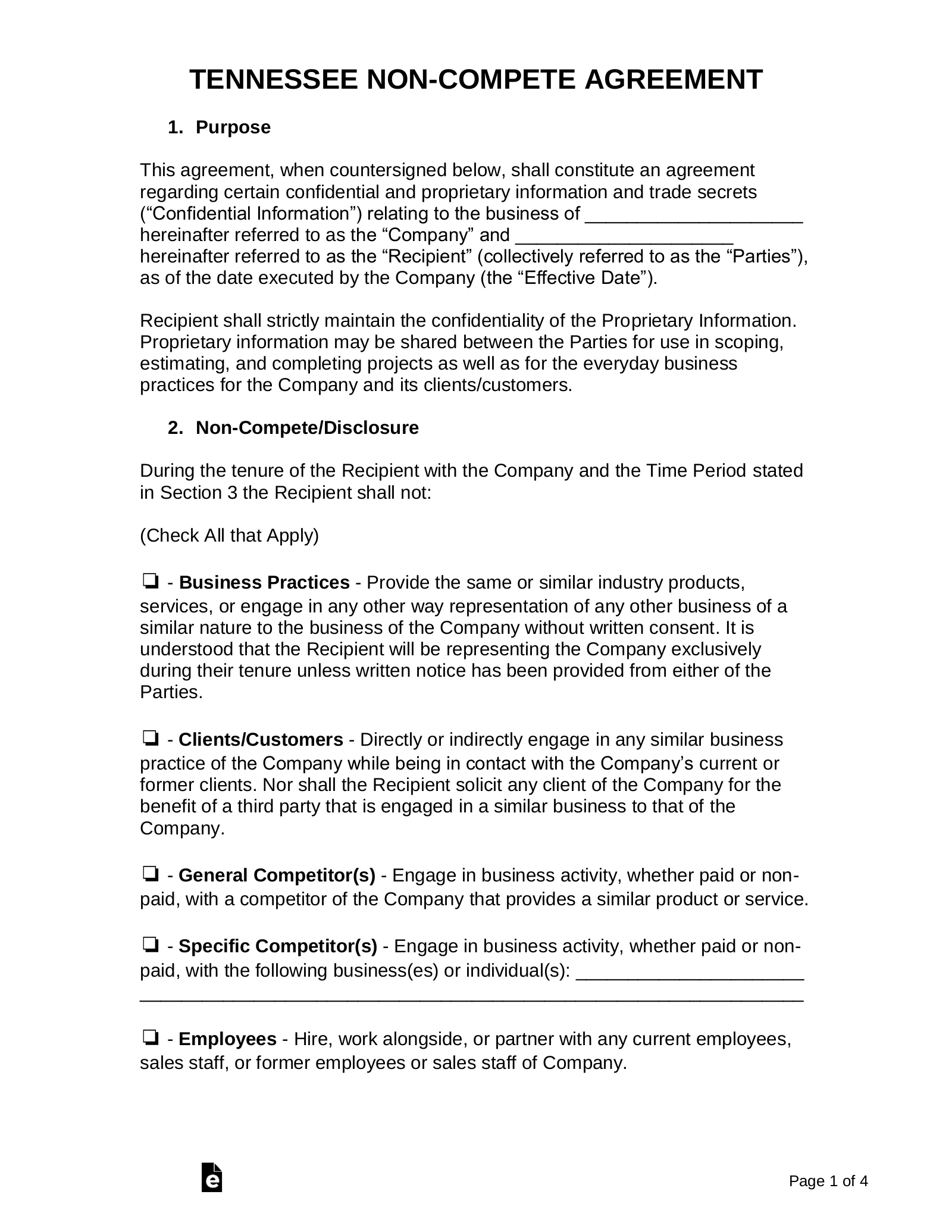Updated February 28, 2024
A Tennessee non-compete agreement restricts an employee from competing in the same business as the employer after termination. The non-compete is required to include the jurisdiction, time period, and specific business industries that are prohibited. The agreement cannot overreach beyond protecting the legitimate interests of the business.
Laws
Legally Enforceable?
Yes, a non-compete is enforceable in Tennessee if a legitimate business interest is protected and the time and territorial limitations are reasonable.
Determining Reasonableness
The court has determined the following if an agreement is reasonable:[1]
- Consideration. The consideration supporting the agreements;
- Danger to employer. The threatened danger to the employer in the absence of such an agreement;
- Employee hardship. the economic hardship imposed on the employee by such a covenant; and
- Public interest. Whether or not such a covenant should be inimical to public interest.
Special Facts
Tennessee requires “special facts” to be present “over and above ordinary competition” to warrant the non-compete. For example, an employer cannot request a non-compete simply to lessen the competition.[2]
“Special facts” are defined as a “legitimate business interest in keeping its former employees from using the former employer’s trade secrets or other confidential information in competition against the former employer.”[3]
Continued Employment
If a non-compete is signed while already employed, the continued employment will serve as sufficient consideration provided “the employer continues to employ the employee for an appreciable length of time after he signs the covenant.”[4]
Termination of Employee
If an employee is terminated in good faith by an employer, the non-compete will remain valid and in effect. Although, if the employer chose to have the employee sign the non-compete only to discharge them of their duties soon after, a court may deem the agreement to be unenforceable.[4]
Physicians (prohibited)
The Tennessee Supreme Court has ruled that any non-compete made with a physician is against the public interest and unenforceable.[5]
Attorneys (prohibited)
An attorney is not allowed to engage or enter into a non-compete restriction that limits their right to practice law.[6]
Maximum Period
2 years has been deemed to be reasonable for a non-compete with the limitations able to extend nationwide (as long as the business has a nationwide presence).[7]
Blue Penciling
If a non-compete is overbroad, a court can modify “to the extent reasonably necessary” to protect the employer’s interest without imposing undue hardship on the employee.”
For example, in a recent case the an agreement did not clarify whether the non-compete jurisdiction was for a radius or driving distance of 50-miles. The court, acting in the interest of both parties, modified the agreement to enforce a driving distance (the lesser of the both but also enforcing the entire agreement).[8]
Sources
- Allright Auto Parks, Inc. v. Berry (1966)
- Stainless, Inc. v. Colby (1974)
- HCTEC Partners, LLC v. James Prescott Crawford (2022)
- Central Adjustment Bureau, Inc. v. Ingram (1984)
- Murfreesboro Medical Clinic, P.A. v. Udom (2005)
- Rule 5.6 (Restrictions on Right to Practice)
- James F. Dill v. Continental Car Club, Inc. (2013)
- Vantage Technology LLC v. Cross (1999)


